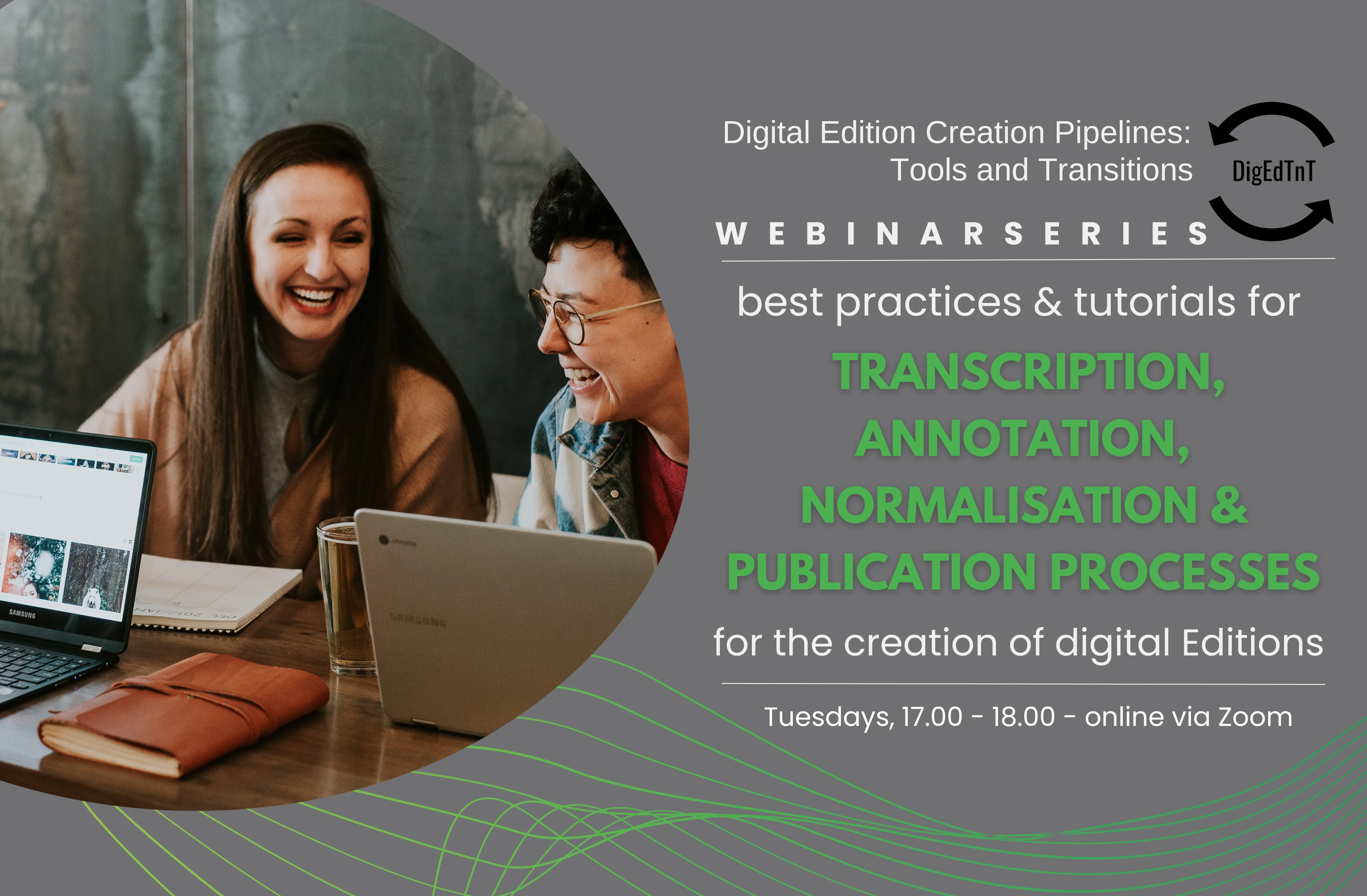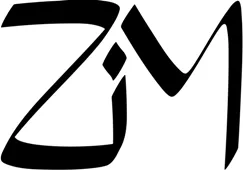
DigEdTnT Webinar Series - Digital Editions: Tools & Transitions
The Digital Edition Creation Pipelines: Tools and Transitions (DigEdTnT) project , funded by CLARIAH-AT’s Funding Call 2022: Interoperability and Reusability of DH Data and Tools , aims to produce best practices and tutorials for selected tools and their transitions. The short tutorials and descriptions of transcription, annotation, normalisation and publication processes with different tools are intended on the one hand to help with the project-specific choice of a tool, and on the other hand to facilitate the first steps in working with a new tool for the creation of digital editions. The transitions presented in the webinars deal primarily with the challenges that arise when, for example, the results of the transcription with FromThePage are transferred to ediarum for further annotation or the documents annotated in FairCopy are to be published after their export using ediarum.WEB.
The results will be published on the following homepage on an ongoing basis and will be expanded and revised by the end of 2023: https://digedtnt.github.io/ .
The event will be held online and will take place Tuesdays, 17:00-18:00. No registration is required for online participation, the stream (zoom) will be freely accessible.
Link to join the Zoom Meeting
Programme
- 19.09.2023 – FromThePage [Transkription] → ediarum.BASE [Annotation]
- 03.10.2023 – Transkribus [Transkription] → Faircopy [Annotation]
- 17.10.2023 – OpenRefine [Normalisierung]
- 31.10.2023 – ediarum.BASE [Annotation] → teiPublisher [Publikation]
- 14.11.2023 – FairCopy [Annotation] → ediarum.WEB [Publikation]


Organiser

Christopher Pollin holds a Master’s Degree in History and a Joint Master’s Degree in Digital Cultural Heritage. He is currently a PhD student at the Centre for Information Modelling (ZIM) at the University of Graz. In his thesis he writes about “Information-based resource discovery for historical information. Using the example of historical financial documents.” He has a great interest in semantic technologies, linked open data (LOD) and web development in the humanities.